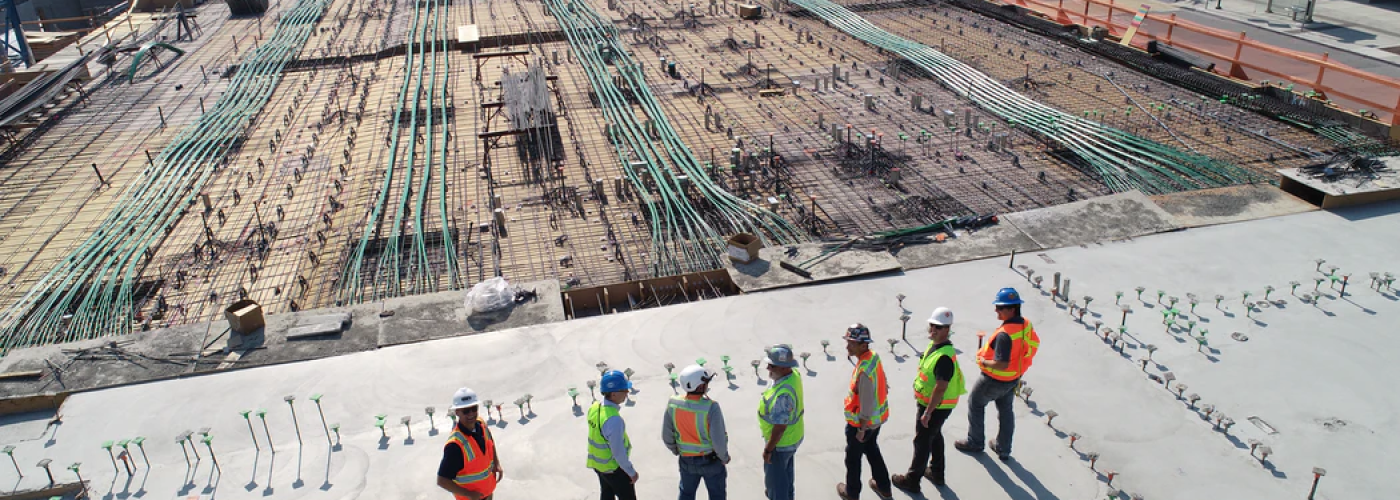Over half (53%) of UK construction workers say their workplace does not offer mental health training
According to the latest study into UK adults’ mental health during the pandemic by Mentalhealth.org1, 13% of UK adults experienced suicidal thoughts in February 2021, rising from 8% in April 2020 at the start of the pandemic.
When it comes to the construction industry, action is being taken to tackle the issues around mental health. Industry bodies, charities and publications have launched campaigns such as Construction News’ annual Mind Matters survey, and Mates in Mind, the charity set up by the Health in Construction Leadership Group.
Whilst the industry is still primarily male dominated, with just 298,000 female workers compared to 1,939,000 male workers2, studies show that 75% of suicides in the UK are committed by men and male construction workers are 3 times more likely to commit suicide than the average man in the UK3.
When it comes to the impact the global pandemic has had on employees’ mental health in the construction industry, a new study4 by the online training provider, High Speed Training, reveals almost two thirds (60%) of construction workers surveyed said they’ve suffered with their mental health over the past year.
In addition, 64% of construction workers said they remain concerned about their own or their colleagues’ mental health, even once lockdown restrictions are lifted.
Looking deeper into the reasons why construction workers have struggled with their mental health during the pandemic, a recent study5 among project managers in the construction sector by the Association for Project Management reveals the main reasons respondents say their project has negatively impacted them. These are:
- ‘My work-life balance is suffering due to this project’ (cited by 40% of respondents working in construction)
- ‘This project is impacting my home life and personal relationships’ (cited by 40%)
- ‘There are unrealistic expectations placed on me by project stakeholders’ (cited by 39%)
- There is insufficient opportunity for me to voice concerns to my superiors (cited by 37%)
Debbie Dore, chief executive of APM, said: “These continue to be challenging times, and many people in the project profession have been impacted for reasons beyond their control. It’s essential that project professionals continue to be properly supported so they can deliver positive change for the people, businesses and communities they serve.”
High Speed Training’s data also shows that the industry has a long way to go when it comes to standardising mental health awareness training and support for employees. Worryingly, two fifths (40%) of those surveyed said they don’t feel there is anyone in the workplace who they can discuss their mental health with in confidence. And, almost a fifth (17%) said they don’t think their workplace provides sufficient mental health support for employees. A further 47% say none of their fellow employees hold mental health training qualifications as far as they’re aware.
Despite this, almost half (45%) of those who aren’t currently offered mental health training said they would partake in it should it be offered to them.
Katie Martinelli, construction industry expert at High Speed Training commented: “It’s extremely worrying that this new data shows how many employees in the construction industry have really struggled with their mental health during the pandemic, and think it will continue to be an issue once restrictions are completely lifted.
“It’s vital that businesses and industry bodies provide and cover the cost of training around mental health awareness, so there are dedicated team members for employees to turn to.
“The first step is providing employees with someone to talk to, who can then provide support and guidance, and escalate issues when required. We have mental health awareness training courses suited to employees and managers. Both courses are open to any industry, including construction, and include information on the responsibilities and duties of all employers with regards to mental health. We also look at the unique difficulties that the COVID-19 pandemic has created and provide specific strategies for these.”
Katie at High Speed Training provides her top tips for employers and employees around how to talk to colleagues about mental health:
- Ensure you are directing people to the correct support
“Having the conversation is the first step, but remember to do your research before you signpost someone to potential next steps. Use websites like Mind to learn more.”
- Encourage someone who is struggling to visit their GP
“It’s important to point out that this could be a big help to someone who is struggling. If they are reluctant to visit a GP, try offering to accompany them – if they would be comfortable with that. However, don’t take control over the situation – ultimately, it’s their choice.”
- Ensure the situation is comfortable
“Think about other points of contact if talking face-to-face isn’t working – some people feel more comfortable talking about mental health over the phone, through text, or through email. You could also choose a situation where you are side-by-side to take the pressure off – for example, talk while you are cooking, driving, or walking.”
- Don’t rush anyone to speak up
“Allow them to open up at their own pace. These conversations shouldn’t be rushed, so don’t start it if you don’t have time. It might take several discussions before you get to the root of the issue – that’s OK!”
- Look out for your own wellbeing
“Remember to look after yourself too – you can’t help others if you are not well yourself. Ensure that you are getting enough sleep, eating well, and setting boundaries if necessary.”
For more information about High Speed Training’s Mental Health Awareness courses and tips around how to talk about mental health in the workplace, visit: https://www.highspeedtraining.co.uk/hub/how-to-talk-about-mental-health/





